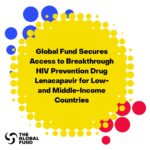By Mike Mwaniki I mikemwaniki2016@gmail.com
People living with Non-Communicable Diseases (NCDs) in Kenya have urged the government to urgently implement measures to protect them from the virus.
The caucus of lobby groups of people with NCDs said the government should prioritize their needs because they at a higher risk of COVID-19 infections and deaths.
Led by Africa Sickle Cell Organization CEO, Lea Kilenga and Renal Patients’ Society of Kenya Chairman John Gikonyo, the caucus urged the government to place those living with NCDs at the center of the COVID-19 response.
“The Government should build a resilient supply chain of essential NCDs medicines and commodities by ensuring their availability, affordability and accessibility at Primary Health Care facilities,” said the consortium in a statement.
The caucus said those living with NCDs who are unable to physically visit health facilities and pharmacies should be supported to access the medication and other commodities.
“The Health and Labor and Social Protection ministries, through the National Emergency Response Committee should include those living with NCDs among the vulnerable population eligible for the COVID-19 kitty as well as social protection benefits,” said the caucus in a statement to the media.
The NCD caucus comprises 30 patient-led organizations based in Kenya, including Women for Dementia Africa, Stroke Association of Kenya, Renal Patients Society of Kenya, Cancer Awareness Centre of Kenya and Kenya Mended Hearts Patients Association, among others.
The caucus, in conjunction with the NCD Alliance of Kenya—which is the national coordinating body for NGOs, civil society organizations and patient led groups and all players working on various aspects of NCD control—held a webinar on August 10, 2020.
The World Health Organization and the Health Ministry have warned that those living with NCDs and adults aged 60 years and above are vulnerable to COVID-19 infection, with persons with inadequately controlled NCDs at higher risk of severe attack with poor outcomes.
Experts say NCDs, which include cancers, cardiovascular and chronic respiratory diseases, diabetes and mental health disorders, among others, currently account for more than 55 per cent of total hospital admissions and over 55 per cent of hospital deaths in Kenya.
The Kenya STEPwise survey for NCDs risk factors (2015) report identifies the major NCDs in the country as cardiovascular conditions, cancers, diabetes and chronic obstructive pulmonary diseases with their sequelae and shared risk factors. Equally contributing to the huge burden are violence and injuries, haemoglobinopathies, mental disorders, oral, eye and dental diseases.
Experts say cancer is estimated to be the third leading cause of death in Kenya, after infectious diseases and cardiovascular diseases.
Estimates from Globocan 2018 show that there are 47,887 new cancer cases in Kenya every year and 32,987 deaths due to cancer annually, up from approximately 41,000 and 28,500, respectively in Globocan 2012. Globocan data provides valuable information on 36 cancers for 185 countries worldwide.
Elsewhere, the Kenya STEPwise report estimates that cancer is the second leading cause of NCD related deaths after cardiovascular diseases and accounts for seven per cent of overall national mortality.
The leading cancers in Kenyan women are breast, cervical and oesophageal. Breast cancer affects 34 per 100,000 population, a clear indication of the threat cancer poses to women.
In men, oesophageal, prostate and Kaposi Sarcoma are the most common cancers, with incidence rates of 17.5; 15.2 and 9.2 per 100,000 men, respectively.
At the same time, a new report by the International Diabetes Federation says 552,000 people in Kenya had diabetes in 2019, but nearly a half of those people are undiagnosed.
When contacted, a senior Health Ministry official, who sought anonymity, said the ministry was currently compiling cases on the number of people suffering from cardiovascular diseases and the report will be “ready by the end of the year.”
The NCD caucus said, “The adaptation of health systems, by the government, to mitigate the spread of COVID-19 has negatively impacted those living with NCDs.
“For example, access to NCD treatment and care has been compromised by closure of NCD clinics as the focus has shifted to COVID-19 containment while supply chains have been disrupted, with transportation costs increasing.”
They said they had received reports of shortages and stock out of essential NCD medicines and commodities in public health facilities.
“Those living with NCDs are experiencing disruptions in NCD healthcare services, which puts them at higher risk of developing life threatening NCD complications and severe COVID-19.”
While acknowledging efforts by the Health Ministry during the COVID-19 pandemic, the caucus said there was a need to ensure protection and wellbeing of those living with NCDs.
“At the same time, we request for clear guidelines on how those living with NCDs can safely attend the re-opened clinics across all levels of the health facilities in Kenya,” said the caucus.
It also urged the government to ensure continuous education of healthcare providers on triaging and best practices for management of NCD-related emergencies.
“With Kenya easing restrictions, we ask the Government to inform the public of the availability of services in these clinics and encourage positive health seeking behaviors.”






